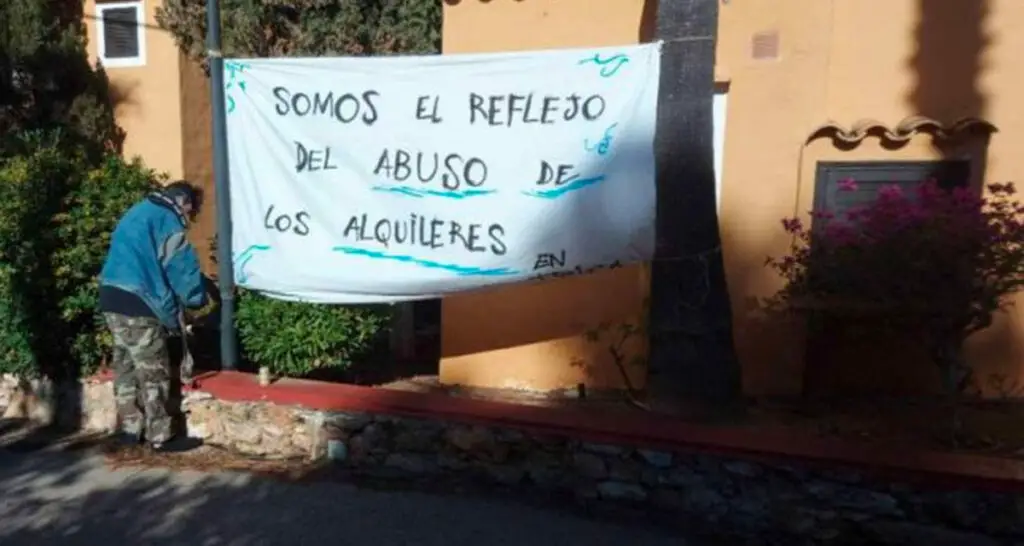Unraveling the Problem of Squatters in Ibiza
Squatters in Ibiza. In Spain, illegal occupation of property, especially by squatters or “okupas,” has risen to be a divisive and complex issue. Instances where squatters unlawfully inhabit land or houses they possess no rights to are increasingly common. Despite this, expelling them often proves challenging and prolonged.

Why the Challenge in Evicting Squatters?
The principal reason behind this challenging eviction is the classification of these squatters as “de facto squatters.” In essence, this categorization leans on tradition, and judges often find their hands tied when it comes to quick eviction. The process can prove to be a long, expensive ordeal, with squatters claiming various exceptional circumstances, such as lack of housing or financial means.
Though the Penal Code in Spain considers illegal occupation as a punishable offense, practically evicting squatters isn’t straightforward. More often than not, it necessitates a complaint and a legal process to initiate before an eviction order comes into effect. This issue becomes even more complicated when squatters inhabit properties with damage that they sometimes maintain during their occupation, deterring any eviction efforts.
Despite the dire need for concrete solutions, both the central government and local municipalities are yet to apply definitive solutions to combat this illegal occupation menace.

Reasons Why Evicting Squatters Isn’t Easy
The question of why squatters can’t be easily evicted sparks a great deal of debate in Spain. There are several situations that complicate the eviction of squatters, largely due to the regulations governing this process.
Firstly, squatters can attain tenant status if they’ve occupied a place for a particular duration, and the landlord hasn’t initiated any legal actions against them. In this case, the landlord must follow the eviction process prescribed by law, which can take considerable time and money.
Secondly, squatters may, in certain cases, enjoy legal protection. For instance, if a bank that has received public money for bailout owns a house, eviction can’t proceed without a specific court order. This rule aims to protect the rights of those affected by the economic crisis.
Lastly, landlords risk illegal eviction, which can have severe repercussions. In these instances, squatters can file complaints against the landlord, instigating investigations that can culminate in fines or even prison sentences.
In a nutshell, evicting squatters isn’t an easy task given Spain’s regulations and the possible legal consequences landlords may encounter. It’s therefore crucial to explore effective solutions that safeguard everyone’s rights involved in such situations
Who Is Dani from Desokupa?
Dani from Desokupa is a media personality who gained fame in Spain through his participation in the TV program “Desokupa”. This show is dedicated to resolving conflicts arising from illegal squatting.
Dani, as part of the intervention team, visits the disputed properties to evict people occupying the premises unlawfully. His role requires strong negotiation and persuasion skills, physical strength, and legal knowledge.
Beyond his TV role, Dani’s personal life also attracts attention. He shares snippets of his biography on social media, where he recounts his humble background and the numerous obstacles he overcame to reach where he is today.
Overall, Dani from Desokupa has captured attention with his charisma and problem-solving abilities. His forthright and honest attitude has earned him a large following, who view him as a modern hero defending the right to private property.
Squatters in Ibiza
The problem of squatters or “okupas” in Ibiza, Spain, represents a serious issue for property owners. Navigating the process of evicting squatters can be fraught with complexity due to the regulations in place. Despite the challenges, understanding your rights as a property owner and seeking legal counsel can help you successfully address the issue. The tale of Dani from Desokupa serves as a testament to the importance of defending private property rights.
- Man stabs ex-wife in Ibiza before taking his own life
- 238 Migrants Intercepted in 24 Hours Across the Balearics
- Man Arrested in Ibiza After Leaving Hotel with €16,000 Unpaid Bill
Car Rental in Ibiza – Secure the Best Deals and Save Up to 70%
In the exciting realm of car rental in Ibiza, ‘Repeat Ibiza‘ excels through its strategic partnership with DiscoverCars, an industry leader in online car rental reservations. Together, they diligently compare car rental prices from a multitude of companies to offer the ideal option for each traveler’s unique needs.

Regrettably, numerous sites obscure extra charges and fees. In contrast, Repeat Ibiza and DiscoverCars.com provide an all-inclusive quoted price that embodies all mandatory fees, taxes, and extras, ensuring no unexpected costs at the rental desk.

Leave a Reply